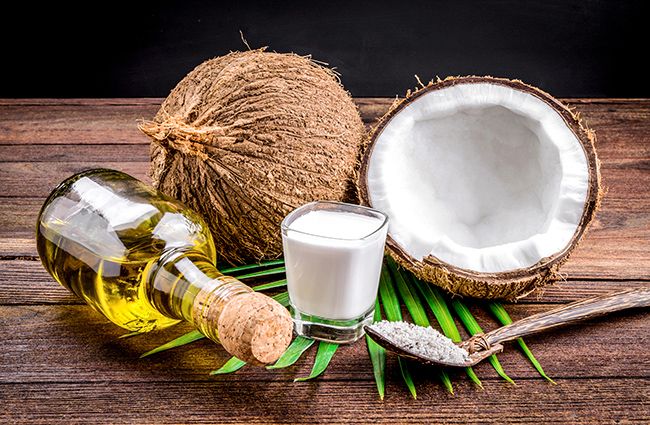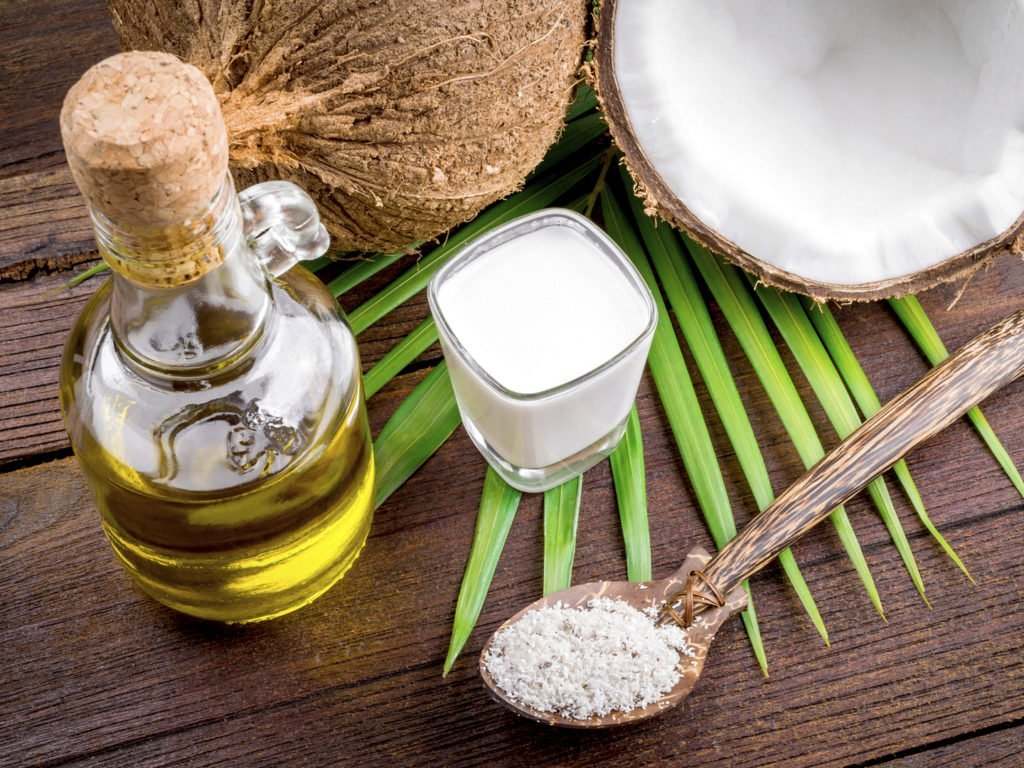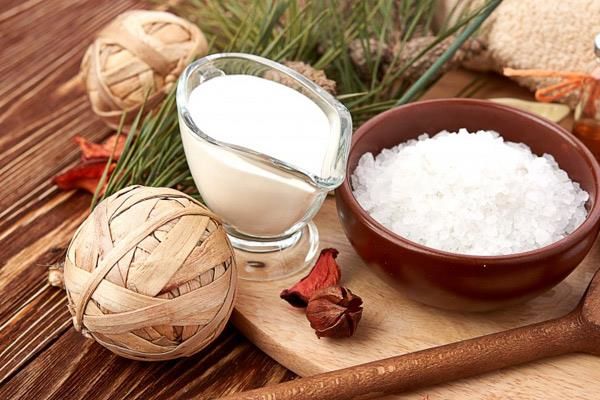
The benefits of coconut oil for the skin
Soothes the skin, reduces irritation
Lauric acid (a saturated fatty acid) in coconut oil is really good for the skin. When applied to the skin, lauric acid has the ability to soothe the skin, so it can soothe redness and irritation. There is also preliminary research showing that it has antibacterial properties, so it can help those with acne.
Acts as a moisturizing protective barrier for the skin
Coconut oil acts as a gentle buffer, preventing moisture from evaporating from the skin and enhancing the skin’s protective barrier by acting as a softener and filling in the gaps between dead skin cells.
Effective makeup remover
Like many other oils, coconut oil is also considered a great natural makeup remover. It can break down makeup, sunscreen, and oil on the face.

Which coconut oil is the best?
The best coconut oil for the skin is cold-pressed and unrefined, as it undergoes fewer processing steps, making it significantly richer in antioxidant compounds – these are the miraculous anti-aging ingredients that help protect the skin from the damaging effects of sunlight and pollution.
However, some skincare formulas sometimes require refined coconut oil. This is a type of coconut oil that has been further processed, so it still has excellent saturated fats that are good for the skin, but with lower levels of antioxidant polyphenols.

Which skin types is coconut oil good for?
Normal, Acne-prone skin: Coconut oil is great for non-acne prone skin. However, this does not mean it is not suitable for acne-prone skin. In fact, some people with acne find that the lauric acid in coconut oil is very good for reducing acne redness and preventing breakouts.
Sensitive skin: Because of the anti-inflammatory properties of coconut oil, it can help soothe and prevent redness, swelling, and irritation, making it completely suitable for sensitive skin.
Dry skin: Coconut oil helps dry skin by preventing moisture loss and softening and reinforcing the skin’s top layer.
Those to avoid: People with oily or combination skin should avoid using pure coconut oil all over their face as it can make the skin look too shiny, especially during the day.
Tips for using coconut oil in skincare
You can use it as a makeup remover by massaging it all over your face and then wiping it off with a cotton pad or soft cloth. Then, you will need to cleanse your skin to remove any residual coconut oil.
Coconut oil as a moisturizer and eye cream
With the excellent softening and anti-aging properties of coconut oil, it will be an effective supplement for moisturizers and eye creams. Coconut oil itself does not moisturize the skin, but when mixed with water and moisturizing agents, it is great for locking in moisture. Use it after applying serums or moisturizing essences as the final protective layer.
Coconut oil as a full-body exfoliant
You can make your own full-body exfoliating mixture by mixing coconut oil with moisturizing and water-soluble exfoliants such as sugar, salt, used coffee grounds, ground oatmeal, etc. Use this exfoliating mixture after you have been in the shower for a few minutes, so the skin is saturated with water, and then coconut oil can adhere. Rub the exfoliating mixture onto the skin to remove dead skin cells and leave your skin smooth, soft, and hydrated.





































